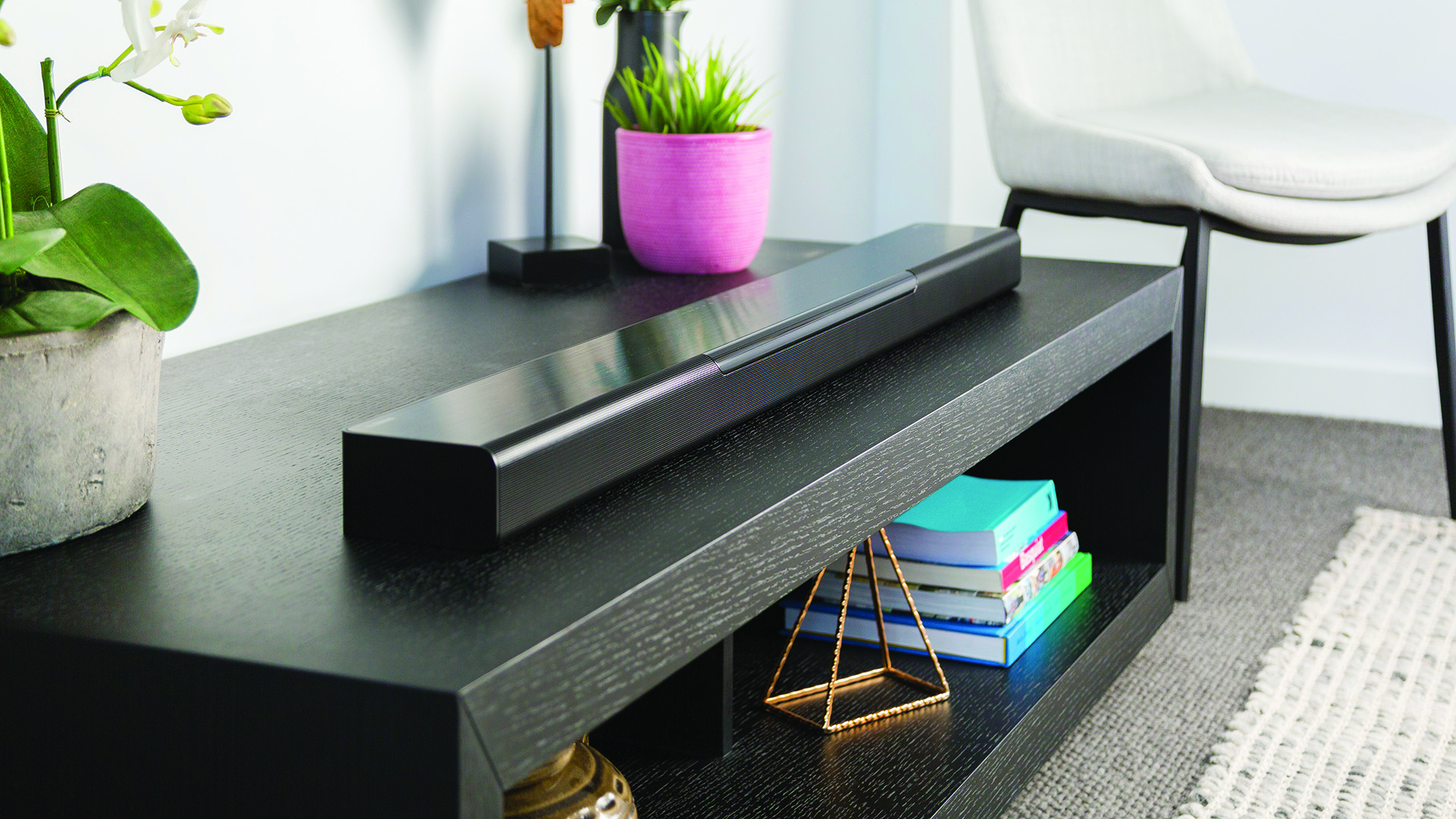
While laptops and smartphones have the luxury of an annual release cycle thanks to steadily improved chipsets, audio products aren’t so lucky – to make something new and improved year after year is challenging at best, and near-impossible unless you have something new to bring to the table.
However, Yamaha looks to have done it with the new MusicCast BAR 400, a $499 / £500 / AU$800 soundbar with Hi-Res Audio support up to 192kHz with 24-bit resolution, virtual DTS:X support and MusicCast multi-room audio functionality.
The soundbar will be available in September, and Yamaha will looking for it to compete with the similarly priced Samsung HW-N650 and LG SK8Y.
The differences between them comes down to feature support: while LG’s soundbar will include Chromecast built-in and Dolby Atmos, and Samsung’s uses its proprietary Acoustic Beam technology to create 3D-like effects, only Yamaha’s supports virtual DTS:X and AirPlay.
Build your own system
While DTS:X, AirPlay and Hi-Res Audio are the soundbar’s marquee features, it’s also compatible with Yamaha’s MusicCast 20 and MusicCast 50 wireless surround speakers, allowing you to build a 5.1 surround sound system piecemeal.
Once your living room is outfitted with the proper audio tech, MusicCast helps you to expand into other rooms while providing one dedicated app that supports Spotify, Pandora, SiriusXM Internet Radio, TIDAL, Deezer, and Napster.
All said, Yamaha's latest looks like budget 'bar with enough high-end features to potentially disrupt Samsung, LG and Sony's dominance in the soundbar space.
Get daily insight, inspiration and deals in your inbox
Sign up for breaking news, reviews, opinion, top tech deals, and more.
- Don't miss our roundup of the best soundbars 2018
Nick Pino is Managing Editor, TV and AV for TechRadar's sister site, Tom's Guide. Previously, he was the Senior Editor of Home Entertainment at TechRadar, covering TVs, headphones, speakers, video games, VR and streaming devices. He's also written for GamesRadar+, Official Xbox Magazine, PC Gamer and other outlets over the last decade, and he has a degree in computer science he's not using if anyone wants it.
